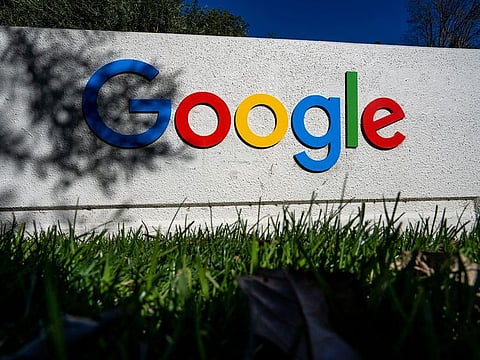Why EU keeps slapping Google with multi-billion fines, from search to ads
EU fines on Google top €11.2 billion — regulators say dominance abused across markets

Dubai: When it comes to Big Tech, no company has clashed with Europe more than Google. Over the past decade, the search giant has been fined an eye-watering €11.2 billion by the European Commission in a string of antitrust cases.
Each fine tells a story about how regulators in Brussels believe Google leverages its dominance in one market to unfairly strengthen its hand in another.
At the heart of these decisions is Article 102 of the Treaty on the Functioning of the European Union (TFEU), which prohibits companies from abusing a dominant position. Google, the Commission argues, has repeatedly done just that.
Four landmark cases
Google Shopping (2017) – €2.42 billion
Regulators found Google was favoring its own comparison shopping service in search results, pushing rival services down the page. The Commission said this self-preferencing practice hurt competition and reduced consumer choice.Android (2018) – €4.34 billion
This remains the largest EU fine against Google. The Commission said Google forced Android phone makers to pre-install Google Search and Chrome if they wanted access to the Play Store. Regulators called it an attempt to lock in dominance in both search and browsing.AdSense (2019) – €1.49 billion
Google was fined for including restrictive clauses in contracts with third-party websites. These clauses prevented sites from displaying search ads from Google’s rivals, limiting competition in the online ad market.AdTech (2025) – €2.95 billion
The most recent penalty zeroed in on Google’s control of the digital advertising supply chain. Regulators concluded Google unfairly favored its own ad exchange, AdX, over rivals, creating conflicts of interest that hurt advertisers, publishers, and consumers.
Why EU keeps pushing
Critics often argue that Google simply “pays the fines and moves on.” Indeed, the company appeals almost every decision, and the fines — while massive — are small compared to Alphabet’s quarterly profits, which topped $28 billion this year.
But EU regulators say the issue is bigger than money. Each case highlights what they see as Google’s systemic habit of bending markets in its favor. As Competition Commissioner Teresa Ribera put it in the AdTech ruling: “Google abused its dominant position, harming publishers, advertisers, and consumers. This behavior is illegal under EU antitrust rules.”
The Commission has also signaled that fines alone may not be enough. In the AdTech case, it ordered Google to stop self-preferencing and warned that a structural remedy — possibly a breakup of parts of its business — could be the only lasting fix.
Geopolitical backdrop
The EU’s campaign against Google hasn’t gone unnoticed in Washington. US President Donald Trump blasted the latest €2.95 billion fine, accusing Europe of “hitting” American companies and threatening retaliatory tariffs. This transatlantic tension underscores how digital regulation is now entwined with trade politics.
Meanwhile, Google argues that the Commission’s findings are wrong and that its services create value for European businesses. “It imposes an unjustified fine and requires changes that will hurt thousands of European businesses,” said Lee-Anne Mulholland, Google’s global head of regulatory affairs.
Beyond fines
Google’s battles with the EU are part of a broader trend. Other regulators — from the US Justice Department to authorities in the UK and Canada — are also investigating the company’s advertising and search practices.
In Europe, the stakes are especially high. The bloc has positioned itself as the global leader in regulating Big Tech, from privacy (GDPR) to competition. For Brussels, these fines are not just about punishing one company but about setting global standards for digital markets.
What’s next for Google
Appeals in progress: Google is challenging all four major fines, and court rulings could reshape how competition law is applied in digital markets.
Risk of structural remedies: If the EU presses for breakups or forced divestments, it could alter Google’s business model in Europe.
Pressure beyond Europe: US courts are also weighing remedies in similar cases, meaning Google faces regulatory fire on both sides of the Atlantic.
For now, Google remains a dominant force in search, advertising, and mobile. But the EU’s persistent actions send a clear message: dominance alone is not illegal, but using it to stifle rivals will not be tolerated.




